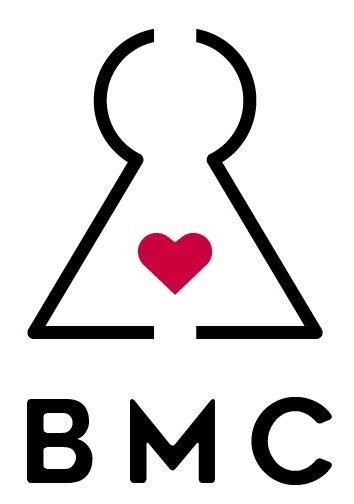BMC Coach Profile: Laura Festa
What inspired you to become a coach ?
Becoming a coach was more of a personal need rather than an inspiration.
After a few years of attending mindfulness group sessions, I felt the need to expand and deepen my way of" being mindful" rather than "doing mindfulness practice."
Surrounded by friends and community, who, like me, shared the desire to learn how to embody the mindfulness approach, I first attended the 8-week Mindful Self-Compassion program at BMC. After that, it felt natural to accept the invitation to join the coach training program also held at BMC.
I was completely unaware of what coaching was, and It was not easy at the beginning to fit into the coaching structure. I felt constricted and inadequate and was close to giving up after a few months.
Thanks to the encouragement I got from my two trainers and mentors, I then decided to stay open and curious because the content and the learning process were equally interesting for my personal growth anyway. This attitude helped me to stay in and enjoy the process.
Today I can say that I am thrilled not to have given up !!
What coach approach shapes your vision?
I would start with Dalida (founder of the Beijing Mindfulness Centre), my mentor, and who introduced me to mindfulness. That has been the starting point of my personal growth journey.
Through the coaching training, a new world of teachers and approaches opened up before me. I followed my way of being and found resonance with Tara Brach and Christopher Germer for Mindfulness and self-compassion, along with David Treleaven for mindfulness applied in different fields.
Time by time, through coaching and individual exploration, I became more aware of what coaching was and what could have been my development direction as coach. Based on my personal interests and qualities, I then approached somatic coaching and recently discovered nature coaching
I have been following some coaches from Strozzi Somatic institute and recently met Amanda Blake who inspired me quite a lot in terms of embodied mindfulness and exploring embodied awareness based on a neuroscience background.
Coaching in Nature is my current stage of development. This approach attempts to combine the sense of feeling grounded by being with and in Nature. With a mindfulness and somatic approach, we allow clients to explore and nourish their inner Nature.
What was a big a-ha moment in your work with clients?
To see the client getting through somatic guided practice and gain new awareness about some hidden emotions and values.
As a coach, to see how my compassionate presence impacts the client from hyperarousal state to the window of tolerance.
Tell us a bit about your coaching in Nature and how you work
Nature has always provided me with the feeling of being grounded and present. Since ever, it has been my source of resilience and inspiration. From the beginning, I have been thinking of coaching in Nature, among the greenery I am familiar with. When I later discovered a niche called "nature coaching and eco-somatic coaching", it was a pleasant surprise.
I then started to follow some webinars and sessions offered by the founder of the Nature Coaching Academy to do some of their practices and integrate them into my coaching. I recently took the courage to explore them with clients.
The client happily agreed to have a session in the park. When we are there, Nature becomes the coach while I take a role of a facilitator or the co-coach.
I believe that the wisdom of Nature inspires and supports clients to connect with their inner wisdom.
During the coaching session, I invite clients to connect to Nature. Whenever clients feel necessary, they can approach the element which talks to them and build a silent dialogue, noticing how the body reacts and what is going on. I also can invite them to walk toward an element. I can be at their side or wait for them to return to the original spot.
I support clients with questions and observations about how I somatically see them in that moment or I simply invite them to explore more what is going on. Silence is part of the session, too.
During this process, through evoking a new awareness, clients usually get clearer about what they need and what is at the core of their discomforts. Coaching based on mindfulness and self-compassion becomes very useful at this point.
The action, which the client commits to take, might also be related to practice in Nature.
Visit our BMC Academy coach directory:
Experience mindfulness and self-compassion with Laura Festa
11th September 10.00 - 11.30 at Chaoyang Park
Do you have a mindfulness practice and want to become a certified mindfulness coach? Contact us!
On 6th September we are starting our new program Mindful Circles, Coaching the Community. If you are a coach with mindfulness practice and want to take your practice to the next level, contact us to schedule a chemistry call.
Learn more about the program in this introduction video session
About the faculty:
Dalida is the founder of the Beijing Mindfulness Centre and BMC Academy program director.
Renee has been recognised for her work by the Women’s Executive Networks (WXN) Top 100 Most Powerful Women awards and Strathmore’s Who’s Who Worldwide Honors.
Together we created and facilitated the Mindful Mothers group at the Beijing Mindfulness Centre and now teach the Coaching from Within: Cultivating Mindfulness Practice program.
Today we are here to train you on how to create and facilitate your Mindful Circle.
Contact us:
dalida@beijingmindfulnessacademy.com
renee@beijingmindfulnessacademy.com
Community Liaison:
anja@beijingmindfulnessacademy.com





